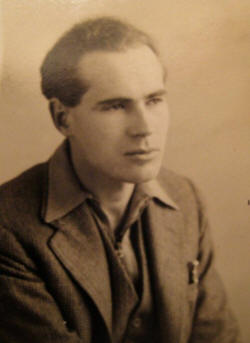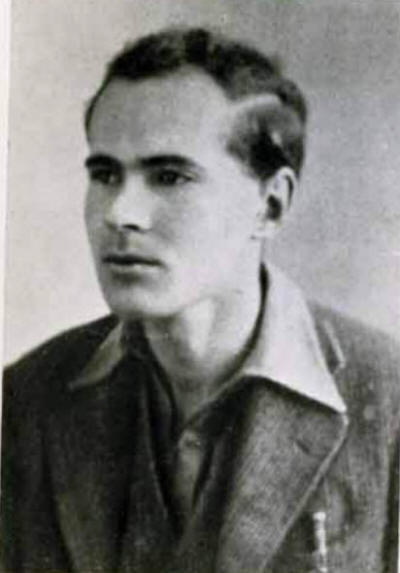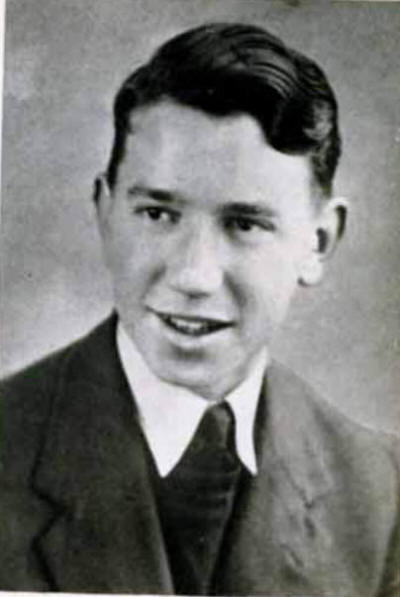

Queer Places:
Cassino Memorial
Cassino, Provincia di Frosinone, Lazio, Italy
 Dan Billany (14 November 1913 – disappeared 20 November 1943) was an English novelist.
Dan Billany (14 November 1913 – disappeared 20 November 1943) was an English novelist.
Billany was born and raised in Hull.[1] He joined the Labour League of Youth and later the Hull Branch of the Socialist Party of Great Britain, but was expelled from the latter in 1933 for his involvement in an internal dispute. He later joined the National Unemployed Workers' Movement. Billany received a degree in English from the University College of Hull in 1937.
The continued strength of his l 930s-inspired socialist beliefs notwithstanding, for Billany the term "Pink Decade" conied by Stephen Spender had more profound, personal resonances: it was the time of acknowledging his homosexuality, and of finding ways to express it. Quite certainly the process was a painful one, forcing him to look deep within himself and leading to a particular kind of disillusion and isolation. Billany's first attempt to write his life into fiction was the unpublished novel, "A Season Of Calm Weather"
His career in teaching was interrupted by the outbreak of World War II; Billany joined the army in 1940 and became an officer as lieutenant in the 4th battalion of the East Yorkshire Regiment.[2] He was captured by the Germans and spent June 1942 till September 1943 as a prisoner of war in Italy.[1] Throughout the war off duty, Billany concentrated on his writing. The Opera House Murders, a thriller, and The Magic Door, a book for boys, were published in 1940 and 1943, respectively. After the capitulation of Italy in September 1943, Billany fled to the countryside with his manuscripts, working on them for weeks while hiding from the German army. He deposited them with a friendly local who promised to post them to Britain at the conclusion of the war. These manuscripts, The Cage and The Trap, were received by Billany's family in 1946 and eventually published to wide acclaim. In Dockers and Detectives, Ken Worpole lauded The Trap as "the finest novel to come out of the war".

Dan Billany

David Dowie
Written after Billany's debut into a wider and more disillusioning world, The Trap is shot through with feelings of guilt that his homosexuality was not just a passing childhood phase. The fictive copy of himself that is Michael Carr is no simple projection of Billany's homosexuality; nor is Carr just an introjection of his wishfulfillment fantasies.
The Cage, which deals in part with Billany's feelings for David Dowie (who disappeared with Billany), via the fictional persona of Alan Matsen, interrogates the view that homosexual love was "compensatory," and does not portray the camps as places of opportunity. As Eric Newby, who was at the Fontanellato POW camp at the same time as Billany and Dowie, and who singles out The Cage as "a remarkable book on this subject", observes: "Even more difficult for the residents in the orfanotrofio [i.e. orphanage, Fontanellato's original function] was any kind of homosexual act. Whatever loves there were between prisoners ... had to remain locked away within the hearts and minds of the lovers until they could be free or were moved to some more private place".
In October 1943, Billany and three friends began to make their way over the Apennines towards the Allied forces. They were last seen in Capistrello on 20 November 1943, and presumably died in the mountains a few days later.[3] Lieutenant Dan Billany is listed on the Commonwealth War Grave Commission's Cassino Memorial, to Commonwealth military personnel who have no known grave, as having died on 1 January 1944.[2]
My published books: